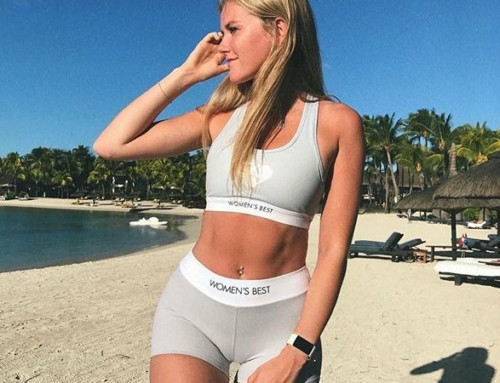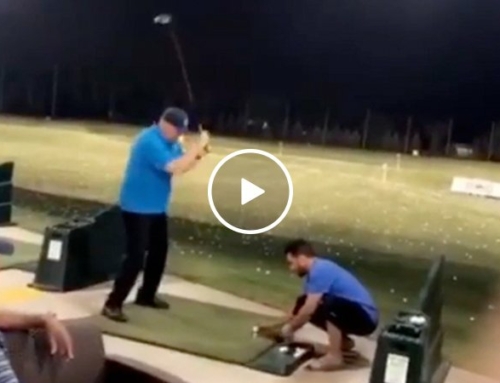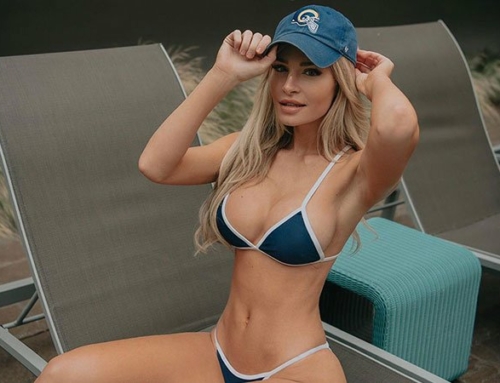
26 mins ago
Hype and success can be a nightmare. Just ask the Avalanches, the Australian DJ group that blessed the world with a masterpiece of pop décollage in 2000’s Since I Left You, a sprawling recombination of decades worth of dollar bin records that allegedly had more than 3,000 samples going into the sonic blender. They spent the first few years of this century racking up plaudits and touring the world. And then, nothing.
In the past decade, the Avalanches have slowly become a punchline as it seemed increasingly unlikely that a new record would ever see the light of day. Were they psyched out by the inevitable comedown of overzealous expectations? Had they broken up? Some rumors arose. We knew they were recording. Unlike their first album, the group was now relying on original vocals—teaming up with artists from a wide variety of musical backgrounds, everyone from Danny Brown to Father John Misty to Biz Markie to Silver Jews’ David Berman. And we all know how albums like that go: They either really work or they really don’t.
The only thing fans could do during this endless waiting period was trawl through a database of radio shows, podcasts, and live mixes while watching genre-smashing descendants like Girl Talk and Hollertronix take the crown. Then Darren Seltmann, the Avalanches’ most visible member, officially left the group in 2014. That left only Robbie Chater and Tony Di Blasi as the main minds behind the music, along with mainstay James De La Cruz, who is a part of their touring unit. Last November, Since I Left You turned 15, and no one really seemed to care. Then Modular, their label, folded. It wasn’t looking good.
But finally, in April, their website and social media accounts were updated with the image of a butterfly. (At this point, you really know it’s official when a social media team has been hired.) And last month, they performed a handful of DJ sets in Europe, where they mostly played non-Avalanches records in their signature slap-dash style. “It was kind of chaotic,” admits Chater, talking about the first comeback gig from his hometown of Melbourne. “We went through the set once before we stepped on stage in front of 25,000 people for the first time in 10 years. It was definitely emotional. It’s been a long journey.”
“Really, really long,” adds Di Blasi.
And now we have Wildflower, an album that could have been made by nobody but the Avalanches.
Pitchfork: As far as why it took so long for this album to be completed, people have talked about it being due to a mixture of licensing issues and perfectionism. Would you say that’s true?
Robbie Chater: Those two issues are both correct—although transcending them ended up being as much a part of the journey as the record itself. We had to make a lot of music to break through that perfection thing and really start to embrace all our imperfections. There was a great point halfway through making this record that we realized it’s almost sounding like a loose, punky, psychedelic rock’n’roll record with samples, and once we came to that realization, things started moving a lot quicker.
As far as samples, they started clearing stuff years ago, but then there would be some hold-up and they’d have to go back and renegotiate. People would give permission for us to use the sample, and then a certain amount of time would elapse and they would Google who the band is and be like, “Oh shit, I can ask for more money.” That sort of thing took forever. And it’s all sampled, really. There are the guest vocals and beautiful orchestration from
You can hear the time that went into [the album], especially in the moments when the tracks join to each other—it took a lot of time to find the right sounds of people on the street and all those things. A lot of tracks were made quite quickly, but putting the whole thing together was time-intensive.
You had hundreds of different mixes for the album’s first single, “Frankie Sinatra,” before settling on the final version, which made me curious: At what point does it become difficult to hear the same song over and over?
Tony Di Blasi: There were definitely points where every time I heard that song I wanted to jump out of my body, but it’s part of the process, where you just can’t feel the music anymore. In the end I just left it to Robbie to finish it. The compiling of the album is difficult because the journey of the record is so much about a feeling in the songs and, after a while, if you’re not feeling it, you can’t compile it in the way it’s supposed to be compiled.
RC: Feelings are the core of what we do, but we have to have breaks and take some time away from it.
TDB: Or we’ll go crazy.
How many samples are on this record?
RC: I’ve got no idea. There’s so many fragments and different pieces.
How did you go about clearing all the samples this time?
RC: There’s a lady called Pat Shanahan that lives in L.A. who cleared all the samples on the first record, and she cleared all the samples on this record, too. She’s an amazing lady. They call her “the detective.” She cleared all the samples on all those old Beck and Beastie Boys records. So we’ll send her all the information we can find and then she goes off and tries to track down these albums. Often [the artists] are not even interested in corresponding, so it’s a crazy process.
Or someone might be dead.
RC: Exactly. She’s a one-woman operation who seems to know everybody because she’s done it so long, and she just goes to work in terms of tracking sounds.
Was there a specific sample that was especially difficult to clear?
RC: We were very lucky to get permission to use the Beatles sample [of “Come Together”] on “Noisy Eater.” That one was initially refused and then we ended up finding contacts for both Paul McCartney and Yoko’s people through friends of friends. We sent them the track and just wrote a letter explaining our process and what we’re all about, and that this is a project from the heart and it’s not a money-making exercise and it was a sincere use of the original music. That was a song that we were going to take off the album if the sample didn’t come through.
Did you guys have a set concept behind this record at the start?
RC: It’s more about that intangible feeling, we just know that it’s us when we find it: It’s from the heart, and it’s day-dreamy, halfway between happy and sad. That’s the reason why you love those sad Beach Boys records when you were growing up—that is the sweet spot that we’re always aiming for. The part of Since I Left You that was the most successful to me was when we hit that spot even though most people said, “Oh, so it’s a party record.”
The record finds itself as it goes along, and you’re a part of the journey. It was just about that feeling of freedom and reckless abandon. Tony said he feels like Wildflower is like a person, a free spirit, someone who does their own thing regardless of conventionality. We were sampling a lot of psychedelic music at the time and looking back at the counter culture of the ’60s and wondering: Who are today’s anti-establishment heroes that will stand up and tell it like it is?
Your music hooks people emotionally for reasons you can’t really put your finger on. It taps into something about being a child, and the idea of memory is really persistent in it.
RC: Man, that’s it. It’s that place. It’s like how a child might have a certain feeling or tone attached to memories of growing up. That’s definitely a part of some of the songs on this record. And the way our memories have become intertwined and confused; that feeling of a memory is a beautiful place. It’s nice to hear you say that people get into it emotionally because that’s where we come from when we’re making it. It’s not about the ingredients at all, it’s about taking a feeling. It’s cool that wherever you put the needle down on this record, it sound like us, but it’s not the first record either. It goes somewhere else.
Right now the Avalanches is essentially a two-person operation, but did any of the ex-members have input on the new record?
TDB: When we finished up with touring Since I Left You, [former member] Darren [Seltmann] was still around but he didn’t seem that interested in making new music. We ended up writing so much new stuff, and then, you know, life happens. He had a family and a kid. There was no income or anything like that. We didn’t realize going into it how long it was going to take.
Are you still buddies with Darren?
RC: We don’t have a lot of contact. He was really like my big brother while making Since I Left You—a super charismatic, confident guy. I was the opposite. It was this great combination, and he was a good editor for all of the music I was making. But you grow up, and roles change, and you don’t need your big brother anymore.
How has growing up and simply aging over the last 16 changed your creative outlook?
RC: When you’re younger, you’re just going with the flow and living day-to-day. But at a certain point you start to look to different artists for inspiration as far as what a sustainable career looks like. I’m 40 now, and all of these questions start popping up, like: What kind of lifestyle do I want to have? At a certain point, though, we made a commitment to each other to just do what we needed to do to finish this record, and see it through. I feel like it’s a quieter record, but it’s also more confident. It ended up feeling quite joyous and free in the end.
Do you read about yourselves on the internet?
RC: No. And that’s helped with the focus of this record actually—getting to that point where it’s something that we do but it’s not us. I don’t really feel like there is an Avalanches—like, the music is the Avalanches, and then we’re all superfluous to that. Because it’s such personal music and so filled with feeling, it’s great to just let it go into the world and then detach from it. That’s not something I would’ve been able to do as a younger artist, but I think it’s necessary. The internet is full of opinions but it’s not necessarily representative of the real world or why we make music.
Have you ever thought about doing a club record or a straight hip-hop record?
RC: What I think would happen is we would sit down with the intention of making a club EP or a hip-hop EP and it would just turn out sounding like the Avalanches anyway, despite other intentions.
I heard that you said you’d like to put something else out in the next three years.
RC: Oh, really? That wasn’t very smart of me to say.
Source: Pitchfork – Features





